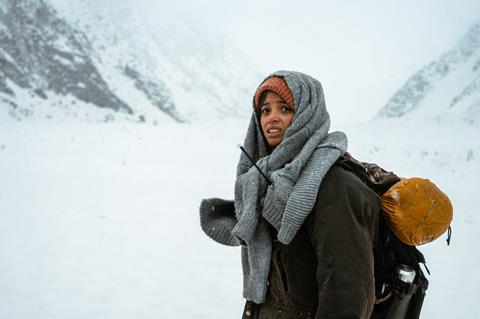
The 16th Network of Asian Fantastic Films (NAFF) project market in South Korea is set to showcase nearly 30 titles from 18 countries when it runs from June 30 to July 3, alongside the Bucheon International Film Festival (BIFAN).
Thomas Nam, managing director of NAFF and BIFAN programmer for English-language cinema, spoke to Screen about emerging trends in genre filmmaking, and the impact of the industry platform in recent years.
Making the selection for this year’s NAFF, what trends have you seen?
Instead of hybrid, there are more projects where people are getting back to settling on one or two pure genres. Rather than comedy horror or horror with romance we have a lot of suspense thrillers and pure horror, a lot of them are coming from Southeast Asia.
I think they are now getting over the limited-budget way of thinking. Previously, projects were in the range of $100,000 and under. They are now looking at bigger scales and what is possible. Southeast Asia overall is gathering with governments offering funds and so on, so it is possible for them to come up with anything from more than $500,000 in scale, which is five-fold bigger than what we were used to. Really talented filmmakers, too.
Are there any recent NAFF projects coming down the pipe that you are excited to see?
There are six films that are former project market selections that are now screening in BIFAN including Tiger Stripes [winner of the top prize at Cannes’ Critics Week] and Restore Point in Competition. We have the world premiere of the Czech Republic’s Restore Point and it’s been confirmed for Karlovy Vary, Neuchatel and others not yet announced.
We also have former Nordic Genre Invasion project The Occupant, which is in post and has been picked up by Altitude Films. It will be completed by end of the year and we’re trying to show it next year.
Another is Guan Tian’s The Poison Cat, which received the NAFF Award at HAF [granting automatic selection for NAFF 2023]. It was originally Chinese but changed to a Hong Kong project because it’s impossible to find funding sources with the kind of topics they are dealing with [due to censorship]. The filmmaker wants their original concept of horror to be realised to create an impact that can appeal globally. A lot of people are intrigued.
How have NAFF and the BIFAN Industry Gathering (BIG) – comprising NAFF, the Fantastic Film School (FFS) and Made in Asia – contributed to the growth of the Asian genre film industry?
We are very happy with the young talents we have developed and are getting global recognition now. In five to 10 years, they will be leading figures of their countries’ genre industries.
Filipino film In My Mother’s Skin, which is in BIFAN official selection, was the first ever Midnight section selection in Sundance from Asia. Director Kenneth Dagatan started as an FFS attendee, brought the project to us at NAFF and we gave him the Asian Discovery Award. Two years later, it went to Sundance, Rotterdam and us, and is going to others.
There are many other cases of former participants like Bradley Liew, who is a leading figure in the Filipino indie film scene along with his wife Bianca Balbuena. Some 91 former projects have been completed as films and a few others are about to be finished like The Occupant and The Cursed Land.
What are some of the recent changes you have seen in the Asian genre film industry?
The current trend in genre is the rebirth of folk horror movies. I see that a lot among Asians as well. Filmmakers are applying tech savviness that might not have been there before so the films they are trying to make are globally competitive. More are getting representation outside of Asian territories such as Mattie Do [the Laotian director of Venice and Toronto title The Long Walk and a former NAFF selectee] who is repped by XYZ Films while The Cursed Land is repped by WME Independent.
What else is new at NAFF?
We are bringing back the “country spotlight”. In the last three years, we had project spotlights to help and encourage Korean filmmakers in the pandemic. This year, we’re back to an overseas spotlight. We are working with Japan’s Visual Industry Promotion Organization (VIPO) and they are bringing five Japanese projects to spotlight. VIPO has also been giving out a JYP500,000 ($3,500) award, open to all projects, since last year.
We also have new sponsorship from Taiwan’s TAICCA with a $10,000 award, which they will be doing for two years, and we have a further agreement with the Taipei Film Commission where they have co-selected two projects and two Fantastic Film School attendees and provided the airfare for up to six people to attend our programme.























No comments yet